It’s a Battle. Depression is More Than Sadness

There’s a quote that reads, “A human being can survive almost anything as long as she sees the end in sight. But depression is so insidious, and it compounds daily, that it’s impossible to ever see the end.”
Elizabeth Wurtzel’s words above convey the weight of depression. It’s a heavy topic, so we often avoid it. Yet, at the moment, nearly 40% of us are confronting it. And with a statistic like that, it’s about time we start the conversation.
Truthfully, I’ve battled depression my whole life. And it’s a war I’ve fought alone. I don’t discuss it because it’s ugly— people don’t like ugly. It makes them uncomfortable. The stigma is so thick it’s suffocating.
Secondary Trauma- Recognizing the Signs & How to Cope
What if I told you the lifetime burnout rate for social workers is a whopping 75%? Would it shock you? For most of us, it wouldn’t! The work we do is challenging! Each day, we deal with other people’s stress and trauma. And too often, we take on that baggage ourselves.
That said, to stay on top of your game, it’s critical to recognize the signs of secondary trauma and embrace strategies to combat them! Below are a few of the symptoms of secondary or “vicarious” trauma.
Emotional — Feelings of numbness or detachment; feeling overwhelmed or maybe even hopeless.
Physical — Low energy or fatigue.
Behavioral — Sudden change in routine or engaging in self-destructive coping mechanisms.
Professional — Low performance on job tasks and responsibilities; feelings of low job morale.
Cognitive — Experiencing confusion, diminished concentration, and difficulty with decision making; experiencing trauma imagery, which is seeing events over and over again.
Spiritual — Questioning the meaning of life or lacking self-satisfaction.
Interpersonal — Physically withdrawing or becoming emotionally unavailable to your co-workers, family, or friends.
Do any of these signs sound familiar to you? If so, below are few things you can do to battle secondary trauma.
Boundaries. Social work is taxing! Don’t take other people’s stress home with you! Let your client’s “stuff” stay at work.
Reach out. If you’re struggling, talk to a friend, co-worker, supervisor, or even a professional about the impact secondary stress has on your wellbeing.
Healthy lifestyle. Get back to the basics when it comes to wellness! Ensure you’re eating a healthy diet, getting enough sleep, and moving your body regularly.
Connection is key! Don’t socially withdraw! Stay plugged in with friends and family.
Look into YDI resources. There are tons of great tools available through our employee assistance program and insurance benefits to combat secondary trauma. With everything from free therapy to wellness resources, you can’t afford not to look into our HR benefits!
Final words. Remember, the work we do is hard. If you’re struggling, you’re not alone. However, you can’t help others well until you first help yourself. Make the time to take care of YOU!
If you found this article helpful, check out our blog, wellness toolkit, and social media pages today for more great resources.
A Healthy You Starts with Healthy Living
How do you keep yourself at peak performance? Our body’s our temple, and how we fuel it is critical to our overall wellness. Below are a few healthy living tips to keep you at your best.
Get moving! Try to get 30 to 60 minutes of exercise daily.
Eat LOTS of richly colored fruits & vegetables daily.
Watch your meat! Incorporate more fish & plant-based proteins into your diet.
Healthy fat is great fat! If it’s solid at room temperature, it’s no good for you! But monounsaturated fats like those contained in almonds and olive oil are super heart-healthy!
Stay hydrated! Drink plenty of water and even sip on some tea. However, try to skip the sugary sodas, highly caffeinated beverages, and remember moderation when it comes to alcohol.
Make it whole wheat! Seriously, every time. Switch to whole wheat noodles, bread, and even tortillas. You need 21-38 grams of fiber daily.
Watch the refined sugar & sodium! This dynamic duo is everywhere, and too much of either is terrible for your body. Excess of it is linked to everything from obesity to diabetes and even heart disease.
Cut back on processed food. Too often, that quick meal lacks nutritional value and even contains terrible ingredients for your health.
Sleep’s important! Get yourself on a sleep routine and stick to it! Not getting enough zzzs is tied to everything from poor mental health to chronic disease.
Slow down when you eat. It takes 20 minutes for your brain to register when your stomach is full. And overeating can lead to everything from sluggishness to chronic health problems.
Final words. Remember, any sustainable routine starts with balance and moderation. No one lives a perfect lifestyle 100% of the time, including this writer.
If you enjoyed this article, check out our blog, wellness toolkit, and social media pages today for more great resources.
8 Books to Inspire You to Do Life On Purpose

Years ago, when a customer threatened to get me fired, I read Brené Brown that night to remember that I am worthy, no matter what anyone may say.
When my brain feels like it’s on overload as I try to keep up with our family’s schedules and a daunting to-do list, I’ll flip through Essentialism to help me refocus on my real priorities.
When my heart feels heavy with the sadness and struggle we see in the world, I’ll read a chapter of Love Does and remember that there is beauty and wonder—and lightness and hope—out there; I just have to be open to it.
Aside from my relationships, I don’t think anything has shaped me as much as the nonfiction books I’ve read.
Each of the books I’m sharing today have become an old friend—something I can open and read even just a few paragraphs from when I know I need a certain message.
I hope some of these titles become old friends for you, too.
The Secret to a Meaningful Life is Meaningful Relationships

My friend Jonathan Shapiro has a morning routine. Every day on his way to work, he buys a newspaper from the same street vendor, whose newsstand is by a busy subway station in New York. Though both Jonathan and the vendor have every incentive to rush through the exchange of goods for money and get on with their days, they always take a moment to have a brief conversation.
Their little exchange, as humble as it may seem, reveals a great deal about how we can each lead more meaningful lives, as I write in my new book, The Power of Meaning: Crafting a Life that Matters.
Many of us are so caught up in our own lives, so rushed and preoccupied, that we acknowledge the people we are interacting with only instrumentally. We fail to see them as individuals. But Jonathan and the vendor break outside of their cocoons and form a brief bond with one another. Each of them lets the other one know that he is heard, seen, and appreciated—that he matters.
If you ask people what their most significant sources of meaning in life are, they, perhaps unsurprisingly, list their close relationships. But, as I researched my book, I discovered something that did surprise me: our loose ties to others can be potent sources of meaning, too. That’s because one of the pillars of a meaningful life is a sense of belonging—which you can cultivate with your partner, children, and closest friends, of course—but also with your newspaper vendor, local barista, and even a stranger on the street. These micro-connections are sources of meaning we can all tap into to lead deeper and richer lives.
It’s Heavy. Bearing the Weight of Grief & Loss

Grief is a heavy thing. For those who’ve experienced it, it feels like you’re carrying around a boulder, and no matter how hard you try, you can’t seem to shake the weight. Really, it’s physically and mentally exhausting.
According to the Mayo Clinic, grief is a natural response to loss. It’s a “strong, sometimes overwhelming emotion of sadness stemming from losing a loved one, a terminal diagnosis, or the diagnosis of someone you care for.”
Anxious? Focus on What You Can Control!
Are you feeling anxious? If so, you’re not alone! Statistics show that roughly 50% of Americans are battling daily anxieties at the hands of this pandemic. And it’s not surprising, with all the uncertainty still floating around in today’s world, there’s no shortage of things to worry about.
That said, being in a constant state of arousal due to fear can make life pretty challenging. In fact, it can impact everything from your physical health to relationships. But, no need to fret! Bozeman Area Manager Chloe Meltzer has some tips to help you cope!
Are you looking for more ideas on how to cruise right on through this challenging time? If so, the Mayo Clinic has the following tips to help you remain resilient during this period of uncertainty:
Gather information to reduce the unknown.
Establish a routine.
Stay connected virtually.
Practice self-care habits.
Look for the good in things.
Exercise
Meditate
Reflect
Reach out
Moreover, if you’re struggling, we have a host of resources to help you stay at your best. Visit the HR section of SharePoint today to learn more about free therapy available through our EAP and health insurance policies.
We want to thank Chloe and everyone else who has shared their stories to help breakdown stigma and empower their teammates to stay healthy. If you’re looking for more great content, check out our blog and the wellness toolkit, located on Sage and SharePoint’s home page.
Two Lessons on Blame from Brené Brown

Brené Brown shares a story about why she identifies as a blamer, and dives into the research and insights about this toxic behavior.
Here’s how to tell if you’re a blamer: When something goes wrong, do you immediately want to know whose fault it is or do you make room for empathy and accountability? If you’re guilty of the former, you’re probably a bit of a blamer—But take heart, you’re in good company.
The Gift of Presence, The Perils of Advice
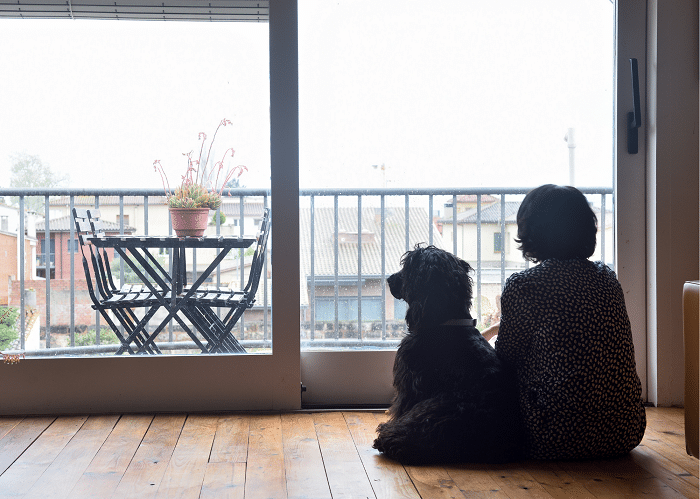
When my mother went into a nursing home not long before she died, my wife and I were told that, for a modest increase in the monthly fee, the staff would provide a few extra services to improve her quality of life. We gladly paid, grateful that we could afford it.
Now in our mid-seventies, my wife and I have no imminent need for assisted living or nursing care. But the house we live in is, by definition, a two-person residential facility for the aging. Here at what we fondly call The Home, it’s not uncommon for one of us to try “improve” the other’s quality of life by offering “extra services.” Unfortunately, those services often take the form of advice.
A few years ago, my wife gave me some advice that struck me as — how shall I say? — superfluous. Remembering our experience with my mother, I said, “Could I pay a little less this month?” To this day, that line gives us a chance to laugh instead of getting defensive when one of us attempts, as both of us do now and then, to give the other unsolicited and unwanted “help.”
Advice-giving comes naturally to our species, and is mostly done with good intent. But in my experience, the driver behind a lot of advice has as much to do with self-interest as interest in the other’s needs — and some advice can end up doing more harm than good.
Mindfulness- To Be Happy Is to Be Self-Aware

What does it mean to be happy? It’s a loaded question, right? For centuries psychologists and philosophers alike have argued the topic. Really, happiness is something we all strive for but rarely feel content in our ability to achieve. But, what if I told you I’ve stumbled upon a solution? It’s mindfulness! By becoming more self-aware, you can transform into the best version of yourself and improve every aspect of your life.
Often, when we’re unhappy, we don’t put our best foot forward. We become self-destructive, lashing out and making impulsive, poorly thought out decisions that reflect badly on us. Really, we end up adding fuel to the collective fire, spreading around negative energy that harms our relationships and ability to be successful in getting our goals met.
20 Things You Gradually Learn as You Let Go of the Uncontrollable

Accept what is, let go of what was, and have faith in your journey.
It’s always necessary to accept when some part of your life has reached its inevitable end. Closing the door, completing the chapter, turning the page, etc. – it doesn’t matter what you title it; what matters is that you find the strength to leave in the past those parts of your life that are over.
It’s all about embracing the truth: What has happened is uncontrollable; what you do now changes everything!
Of course, knowing this and actually living a lifestyle that reinforces this truth are two very different things. Letting go is NOT easy – it’s a journey that is traveled one day at a time. If you stick with it, here’s what your journey will ultimately teach you:
Embracing Mindfulness

Life’s stressful right now! Uncertainty is thick in the air, and it’s piled on top of the stressors of the holiday season. So, if you’re feeling tired, irritable, or like you’re at the end of your rope, you certainly aren’t alone! But, what if we told you that you hold power to calm the storm, simply with the mindset you bring into each day? It’s true! Below are a few of the principles of mindfulness, that with discipline, you can use to become a more peaceful, content version of you.
Experience emotions
Find acceptance
Embrace flexibility
Be compassionate
Make space to forgive
Practice gratitude
Live in the present
Did we spark your interest? If so, check out our latest blog on mindful parenting, Relax! How to Be a More Mindful Parent, which dives into each of the bullet points above. Not a parent? That’s okay! It’s a useful tool for anyone who’s looking to grow personally or professionally.
For more great self-care tips to help you cruise right through this challenging period, check out our wellness resources on SharePoint’s home page sidebar and in Sage under the Resources header.
Freakonomics: Reasons to Be Cheerful

Humans have a built-in “negativity bias,” which means we give bad news much more power than good. Would the Covid-19 crisis be an opportune time to reverse this tendency?
You Don’t Find Happiness, You Create It
After Trauma- Great Things Bloom from Adversity

It’s a fascinating topic, trauma, how it touches each of us in such a deep-seated way. It can shape our being like hands molding wet earth. Really, it creates the framework that surrounds our lives. If you do your research, you’ll find that a whopping 70% of us have experienced at least one traumatic episode in our lifetime. But our trauma doesn’t always knock us down. In fact, many not only grow despite it but because of it.
Why do you think that is? Why do some people struggle while others flourish? Think about it. We’re not talking about resilience here, were talking about mind-altering transformation, growing into something greater than ourselves because of adversity.
Feeling Sick? How You Can Stay on Top of Your Game During this Pandemic!
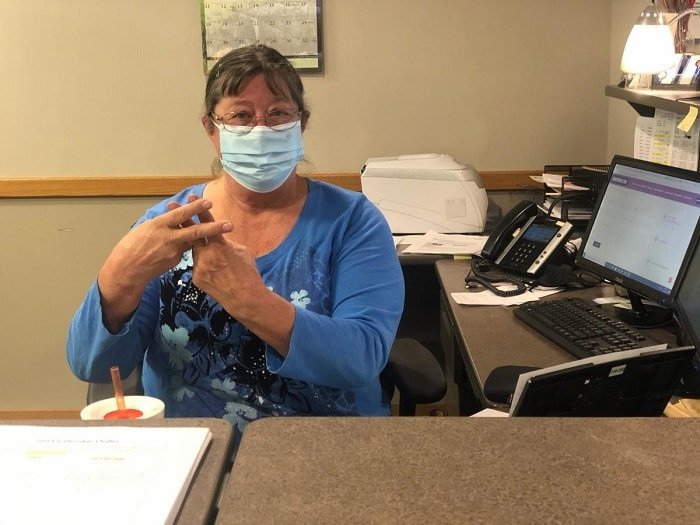
It’s no secret, this cold and flu season is going to be quite the doozy! And, throw a global pandemic into the mix, and things are bound to get a little dicey!
Honestly, everyone’s a bit on edge about their health and safety these days. And with good reason, at a minimum, a little cough, sneeze, or stomach bug could result in two weeks stuck at home. But at most, it could bring severe consequences to you and your loved ones.
The thing is, though, as out of control as things may seem at the moment, there’s still a lot we can do to protect our wellness. Below are a few tips on how to stay healthy and ward off illness.
Eat healthy! Take your vitamin-c, and eat those fruits and veggies!
Drink plenty of water! The rule of thumb is one ounce for every pound of bodyweight!
Social distance when you can! Six feet is the standard!
Prioritize sleep! Now is the time to ensure you are getting plenty of rest.
Don’t skimp on self-care! Stress compromises your immune system.
Wear your mask in indoor public spaces! We know it stinks, but is it really worth getting sick or taking the chance of infecting others to skip on wearing one?
Disinfect your spaces daily! Stop those pesky bugs dead in their tracks!
Keep your germs to yourself! Wash those hands and use sanitizer!
Most importantly, though, be a good officemate and stay home if you’re feeling sick! But, don’t forget to keep your supervisor in the loop! We encourage you to check out our COVID section in Sage and on the front page of SharePoint to learn more about procedures and tools you need to empower yourself during this pandemic.
We want to thank each of you for your continued commitment to our mission to serve the kids and health and safety during this challenging period. Remember, we will make it through this storm. Not alone, but together as a collective whole.
It’s Too Much! How to Manage Stress to Stay at Your Best!
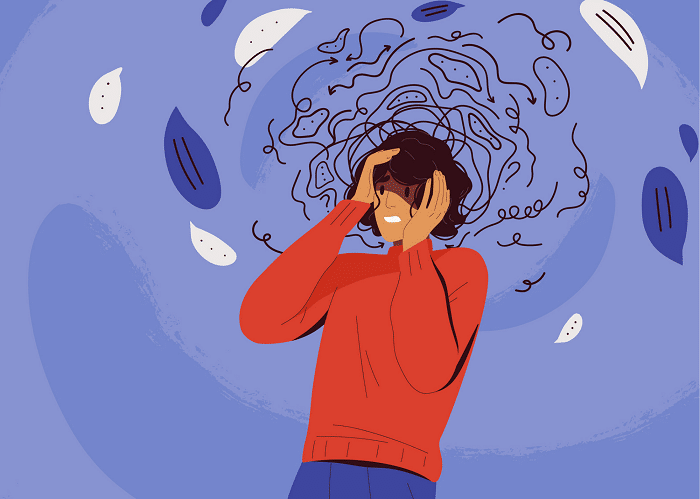
Stress is our automatic response to demands, pressures, and/or competing priorities in our life.
Not all stress is bad. Some stress can motivate us and help us focus on achieving our goals. But too much stress, or stress carried too long, can activate our “fight or flight” response … which, if left unchecked, can decrease our ability to function in one or more areas of our life.
Stress is unavoidable. The goal isn’t to try to get rid of all stress. Rather, the goal is to learn to respond well to stress. This means balancing your daily stressors with the activities and attitudes that replenish the physical, mental, and emotional energy lost to stress.
Are You Investing in YOU?

Would it be accurate to say that you didn’t end up here by mistake? Really, we all chose a career in the nonprofit sector, dedicating our lives to be of service to those in need. And, that’s a pretty admirable thing! But, on the flip side of that, we get so caught up in our mission to serve others that we often forget to slowdown and invest in ourselves.
A couple of weeks ago, we spotlighted our Development Director, Nina Hernandez, in hopes of spreading some of the wisdom she’s bestowed on those she works closely with. Below are a few gems you can use for personal and professional growth.
Slowdown! Be purposeful in your communications.
Your writing is an expression of you! Proofread your emails before sending them.
Presentation is key! Smile at others and invest in your relationships.
Respond to people promptly. Business standard is 48 hours to return a phone call or email.
Invest in your development- we never arrive on our journey to professional growth.
Strive for balance in your work and personal life.
Make time for self-care! YOU are always most important.
Not everything is a crisis. Learn to step back and breathe before engaging.
Remember, we never arrive on the path to personal development. We are continually growing and evolving. If you’re looking for tools to help you on your journey, check out our professional and wellness toolkits located on SharePoint’s front page and under Resources on Sage.
Thank you once again for being a part of team YDI. Don’t forget, to stay strong, we each need to invest in ourselves. Together, we can take our organization to the next level, one thoughtful minute, and intentional interaction at a time.
Feeling Alone? How to Build More Meaningful Connections
Would it shock you to know that a whopping 47% of Americans report feeling alone or isolated at the moment? How about the fact that loneliness impacts more than just our subjective happiness? The truth is, our connections to others play a key role in both our physical and mental health. In fact, there’s a meaningful correlation between social connectedness and lifespan.
Now, the fact of the matter is, there’s never been a harder time to stay socially connected to others. This pandemic has placed real physical parameters around our interactions with those in our world. However, there are still ways to stay connected and be more intentional in your relationships with others.
Below are a few tips on what you can do to maintain social connections and derive more value from them.
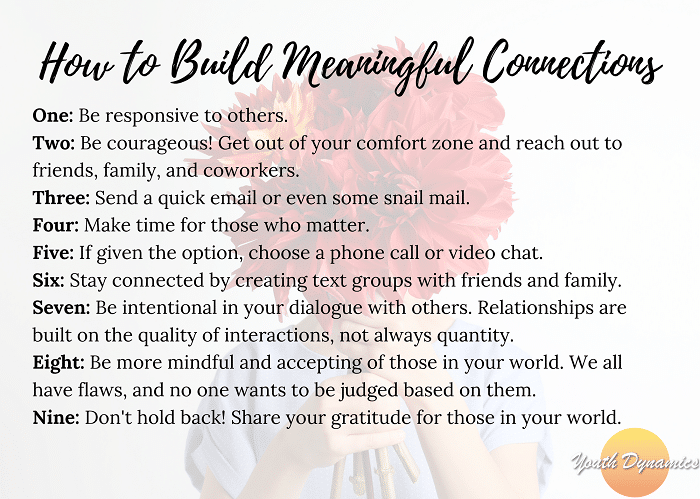
Those are just a few tips to get you started, but truthfully, there are hundreds of ways to create meaningful relationships with those around you. For those who would like to read more on the topic, check out our blog, “Loneliness Epidemic? What It Is and Why It Matters.“
If you’re struggling with the sting of isolation, know that we’re here to help! Free therapy is available through our EAP, and for those on our health insurance plan, you can also access free sessions via Teladoc. To learn more, check out our Human Resources page on SharePoint and contact your HRA at HR@youthdynamics.org.
For more educational resources and self-care tips, check out our blog! And, don’t forget to peruse through our wellness resources on this page and in Sage under the Resources header.
Save a Life- Know the Warning Signs of Suicide

What if I told you that every 40 seconds someone takes their own life? That in fact, suicide is the second leading cause of death among youth aged 10 to 24. It’s a hard pill to swallow, right? Truthfully, if the topic makes you uncomfortable, you aren’t alone.
That’s because conversation surrounding suicide is often swept under the rug. We think, it doesn’t apply to me; it’s not my problem. No one ever wants to believe that such a tragedy will touch their lives. And, when we’re struggling ourselves? We keep it a secret. Culturally, it’s viewed as weak to wrestle with such heavy feelings of hopelessness. And to take your own life? That’s considered unforgivably selfish.
But, the thing is, lead a conversation with anyone, and you’ll find that most of us have been touched by suicide in some way. In fact, since March, statistics surrounding the topic have skyrocketed, with some areas in our nation experiencing as much as a 70% increase in completed suicides. Think about it, that’s a lot of loss and speaks to the struggles many of us are confronting right now.
The last several months have been rough for many Americans. We’re grappling with collective trauma, grief, and loss on a massive scale. We’re grieving the basic human connections we once had that are no longer socially acceptable. The ones that came from giving a friend or family member a quick hug. Many of us have lost our careers, and with that, the basic framework surrounding our lives. And, living with immense levels of stress? That’s now the norm as we continue to bear the weight of constant uncertainty.
That said, there’s never been a more critical time to understand the risks and warning signs of suicide. Because honestly, it can affect your life at any time. In fact, in my 35 years on this planet, I have witnessed more loss by suicide than I can count on both hands. And every time, it was a shock. But, looking back, there were always signs; calls for help that often fell on mute ears.
So, without further ado, here are some of the indicators of suicide that are often missed, but with recognition, can save lives.
A Bit Cranky? How You Can Help Relieve the COVID Tension
It’s not a secret. Is it? We’re just going to come out and say it. Everywhere you go, people are a bit stressed, a little on edge, and overall a tad bit cranky. Truthfully, it’s pretty understandable. We’ve been bearing the weight of uncertainty for over five months now as the “new normal” continues to drag on.
But, the thing is, we don’t have to make this situation heavier than it already is. We don’t have to feed the negative energy that’s looming around in the air. And, by supporting one another instead of lashing out when we’re frustrated, we can help everyone cruise right through this challenging period.
Kennedy Gavaghan, Bozeman Family Development Coordinator, has some incredible insight into extinguishing the roaring flames of irritability that are rising up around us.
Don’t Forget to Take Time for YOU!

It’s no secret that the world is a little heavy these days. Many of us are struggling to bear the weight of everyday life. So, if you’re having a hard time, you certainly wouldn’t be alone in your plight.
But, as the saying goes, it’s not the weight of the load that breaks you down, it’s the way you carry it. Just like an athlete, you need to go into each day with a strategy and make a focused effort to stay on top of your game.
So, what’s the solution? It’s self-care! Taking care of YOU is an absolute MUST for navigating the challenges of today’s universe.
Below are some ideas you can add to your self-care toolbox.
How to Move Through Grief
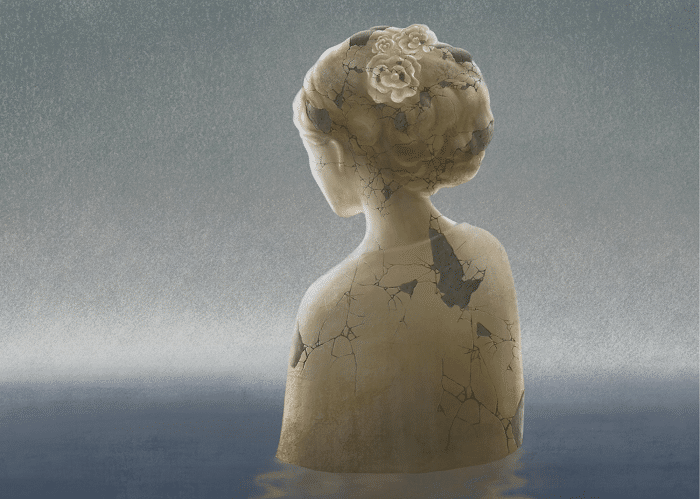
At a time of loss, it’s important to focus on maintaining your health and getting the support you need.
Losing a family member, a close friend, or even a beloved pet can be devastating. All the small details of daily life—getting out of bed, making meals, going to appointments, taking care of children, handling responsibilities at work—may seem monumentally hard or inconsequential. Yet, even as you grieve, you’ve probably been reminded that life must go on. But working through the emotional pain can be difficult, particularly during the holidays, when you may feel you are supposed to be celebrating.
The 10-Minute Morning Routine That Will Clear Your Mind

Your first waking minutes are about clearing the cobwebs of sleep from your mind and getting your brain focused and revved up for the day. How you prep your mind and body during those first minutes is key to putting yourself in the right mindset to take on the challenges and possibilities before you.
By starting your day right, you can maximize your effectiveness, increase your positivity and form good habits that will carry you through the day. The good news is, once we settle into a routine, we’re predisposed to continue doing it out of force of habit. If you can lock in a good morning routine, you’ll naturally begin doing it every day.
Make this 10-minute routine your morning ritual, and you’ll begin every day with your best foot forward. Try these five simple steps to get your morning started.
How to Grieve: 6 Tips for Coping with Grief and Loss

Grief is a highly individual process, as unique as the people experiencing it. Everything from our personal histories and culture to personality traits and temperament affects how we experience and cope with a major loss in our life.
That said, based on my own work as a therapist, it seems to me there are some common themes in the stories of people who manage to grieve well.
What follows are 6 suggestions to help you think about and navigate your own grieving process in a compassionate, constructive, and healthy way.
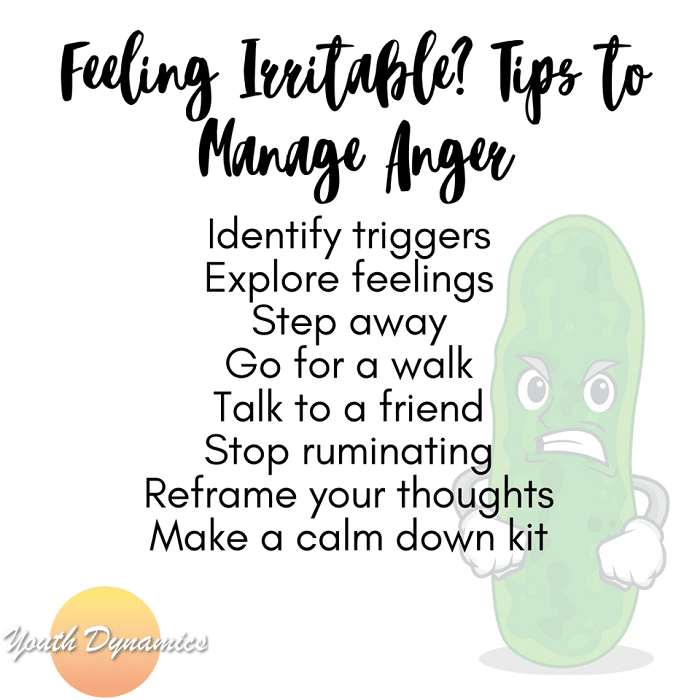
Does the stress of today’s world have you a little on edge? If so, you’re certainly not alone! Recent surveys show that 50% of Americans are experiencing higher levels of irritability due to this pandemic.
We’ve done our research and come up with a few ideas to help you manage your irritability so that you can stay #YDIStrong.
Neuroscience Discovers 5 Things That Will Make You Happy

So what’s going to make you happy? Let’s get more specific: what’s going to make your brain happy? And let’s focus on things that are simple and easy to do instead of stuff like winning the lottery.
Neuroscience has answers. I’ve discussed this subject before and it was so popular I decided to call an expert to get even more dead simple ways to start your brain feeling joy.
Alex Korb is a postdoctoral researcher in neuroscience at UCLA and author of The Upward Spiral.
So let’s get to it. Alex has some great suggestions for simple things you can do to feel happier every day…
Looking for a Boost?
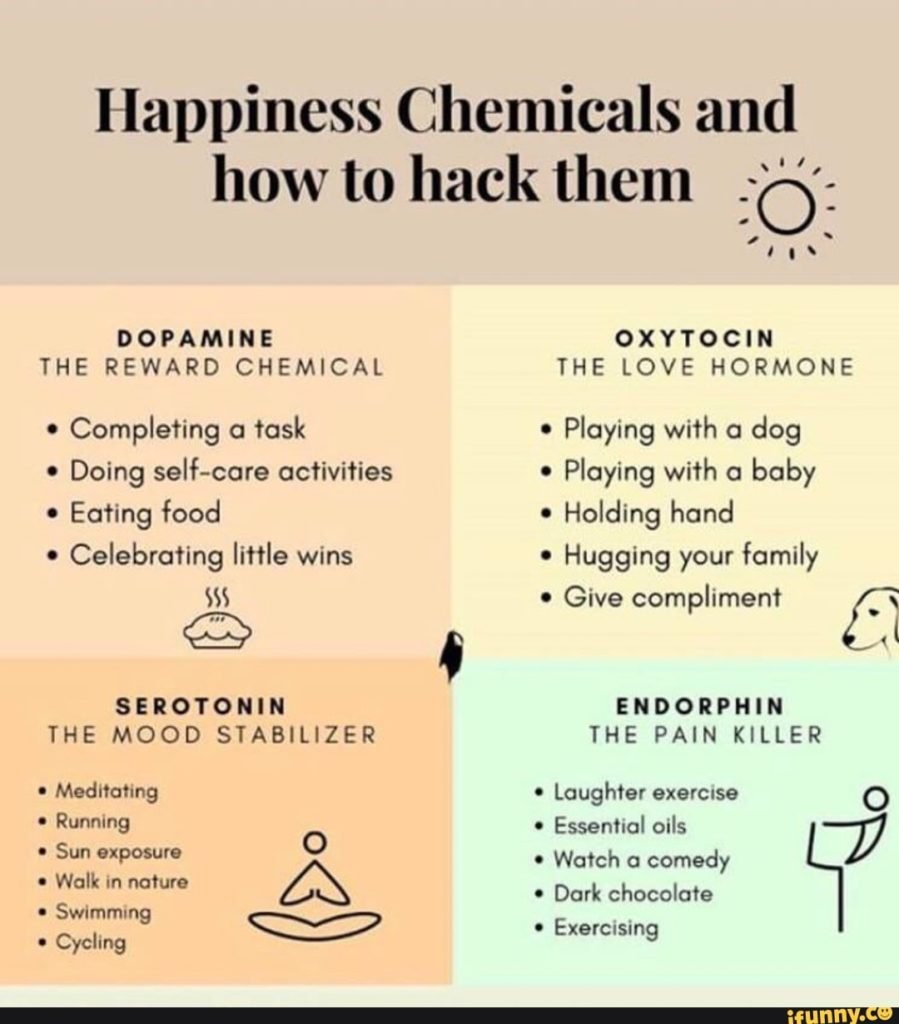
Overwhelmed and Stressed? Why You May Be Feeling Crisis Fatigue

The year 2020 has so far been a difficult one for many. The COVID-19 pandemic has been a significant source of worry and stress for months now, with no end in sight. On top of this, there have been protests, both peaceful and violent, as people strive to find justice in the wake of George Floyd’s death.
With the unrelenting stress of these events, many are feeling a wide range of negative emotions, such as sadness, anxiety, anger, and fear. Yet others have progressed to simply feeling numb or tired.
This emotional state is a condition that has been dubbed “crisis fatigue.”
It’s Okay to Take Time for You!
Now is the perfect time to focus on taking care of YOU! In addition to dealing with this pandemic, each day we’re exposed to heart wrenching stories and difficult behaviors. It is important to recognize that at any given time, any of us could be experiencing secondary trauma. In order to continue doing the amazing work we do, we need you to take time to care for yourself.
Outside of taking the time to talk to someone, Bryan went on to discuss that we can take care of ourselves by taking care of our physical health through eating well, getting enough sleep, and exercising regularly. This can be done by eliminating screen time before bed, planning out nutritious meals, or even taking a break during the day to go for a walk.
We are so grateful for each and every one of you and it is important to us that you feel your best! Follow our blog this month to learn more great self-care tips and other information you can use in your personal and professional life!
Had Enough? You Might Be Suffering From Compassion Fatigue

I. Can’t. Even.
If you find yourself muttering these words more and more often as the COVID-19 pandemic wears on, you might be suffering from “compassion fatigue.” Coined three decades ago to describe the physiological toll experienced by nurses, doctors, social workers and other professional caregivers, compassion fatigue has found its way to the greater community as we mark two months living in a state of emergency in New York and Vermont. Aron Steward, PhD, chief of psychology at UVM Health Network’s Champlain Valley Physicians Hospital, says no one is immune during this uncertain time when our days are dominated by ceaseless worry about the health and safety of our loved ones, the endless needs of our favorite nonprofits and local businesses, and scary, heart-wrenching news on a 24/7 cycle.
“When people say compassion fatigue, what they really mean, in my experience, is empathy fatigue. It really is a biological and physiological response where you are so exhausted – physically, emotionally, psychologically – that you can no longer have the personal reserve to feel for other people,” she says. “You just feel done.”
Here, she offers some strategies for keeping compassion fatigue at bay.
5-Minute Meditation You Can Do Anywhere
Looking for a positive way to reset your day? Meditation not only helps to keep anger and anxiety at bay, but it also does a world of good for your health! Regular meditation can help you sleep better, stave off negative energy, and even promotes healthy blood pressure. So, if you have five minutes, get comfortable and start your journey through this guided meditation.
5 Ways Essential Workers Can Manage Trauma and Anxiety During the COVID-19 Pandemic

In most crisis situations, the first people on site are professionals who have been trained to respond calmly to chaotic and unpredictable situations. Law enforcement, firefighters, and emergency medical workers are accustomed to handling life-threatening events, but the outbreak of the coronavirus has forced us to reconsider our definition of these first responders and essential workers.
Today, we are asking grocery store workers, bus drivers, mail carriers, restaurant workers, janitors, and many other professionals to take on an incredible amount of risk to their health as a means of keeping our country operational while we observe social distancing. These sacrifices come with additional mental, physical, and emotional tolls, so how can essential workers acknowledge the trauma they’re experiencing while taking steps to maintain their mental health in a stressful situation?
Grief- Is That What This Is?
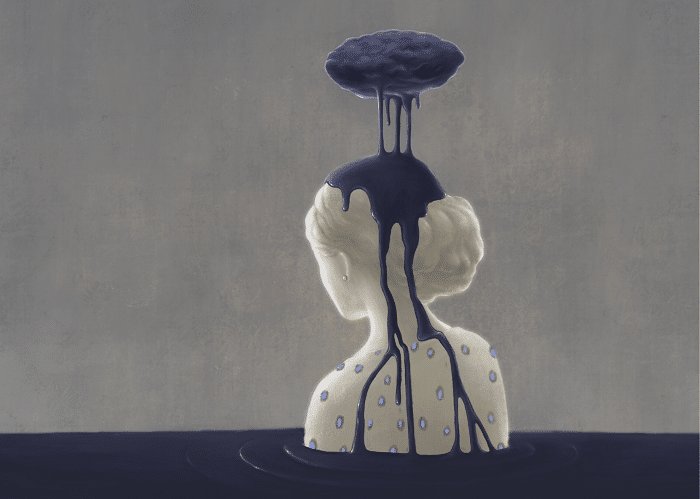
Grief: “Keen mental suffering or distress over affliction or loss; sharp sorrow; painful regret.”
Sound familiar? For many of us it does. In what seems like a moments time, life as we know it was turned upside down. How did it happen that a “normal” part of our reality became talking to someone while separated by a sheet of plexiglass, or braving a trip out in public only to be lost in a sea of people with their faces covered by cloth masks?
For many of us, our careers disappeared in the blink of an eye, or shifted to the new “business as usual.” We’re juggling multiple roles: parents, employees, support people. It’s no longer abnormal to see headlines in the news saying, “Tyson Foods chairman warns ‘food supply chain is breaking’ as coronavirus forces plant closures,” or “Top E.R. Doctor Who Treated Virus Patients Dies by Suicide.”
So, if you’ve been wondering what that confusing, painful ache in your chest is, it might very well be grief. And, for those social workers, aka, “professional helpers”, out there, it may be a particularly unsettling feeling.
11 Anger Management Strategies to Help You Calm Down

Failing to manage your anger can lead to a variety of problems like saying things you regret, yelling at your kids, threatening your co-workers, sending rash emails, developing health problems, or even resorting to physical violence. But not all anger issues are that serious. Instead, your anger might involve wasting time thinking about upsetting events, getting frustrated in traffic, or venting about work.
Managing your anger doesn’t mean never getting angry. Instead, it involves learning how to recognize, cope with, and express your anger in healthy and productive ways. Anger management is a skill that everyone can learn. Even if you think you have your anger under control, there’s always room for improvement.
I’m Spiraling! How to Tame that Anxious Brain

Who doesn’t know that anxious feeling? Like your brain is on a one-way course towards who knows where at a million miles an hour. Try as you might, you just can’t harness it in. In your head, you’re saying, “Did I mess this up? Everyone’s staring at me! No one likes me! The sky is falling!” I could go on and on, but if you’ve experienced anxiety, you probably already know the script.
The reality is, 1 in 5 Americans struggle with anxiety, making it the most prevalent of all mental health issues in our country. In fact, over 30% of us will experience an episode in our lives where we struggle with an associated disorder. For those not well versed on the inner workings of our brains, there’s a whole host of anxiety disorders you could potentially be afflicted with- panic disorder, PTSD, social anxiety, obsessive compulsive disorder, and, of course, generalized anxiety.
How can I cope with depression during the pandemic?
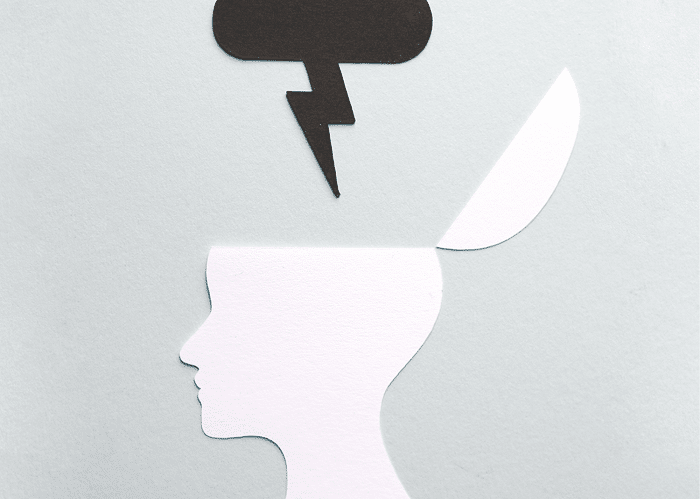
More people than ever are experiencing feelings of anxiety, isolation, and fear during the novel coronavirus pandemic — and there has been an onslaught of data-based evidence that suggests Americans may be more likely then to develop depression. A landmark study completed by the U.S. Census Bureau and five different federal agencies found that a third of Americans, on average, are struggling during the COVID-19 pandemic; 47% of young adults between 18 and 29 within the study’s 40,000 participants have exhibited symptoms associated with clinical depression since the pandemic began. A new Harris Poll found that one in four Americans report a lack of energy or sleep in their new routines, with women being more likely to experience these negative impacts than men (42% versus 34%, respectively). And even if people aren’t losing sleep or can’t drag themselves off the couch, it’s hard for many people to feel truly happy as the pandemic rages on. The COVID Response Tracking Study, conducted by the NORC at the University of Chicago, found that only 14% of Americans feel “very happy,” which suggests Americans are more unhappy now than in any of the last 50 years’ of previously compiled data.
But when do feelings of unhappiness, loneliness, or general anxiety turn into something that you’re not able to deal with on your own? All of the data compiled by scientists during the pandemic suggests that some Americans may be experiencing these symptoms for the first time. Below, experts recount telltale warning signs associated with depression, how you might work to overcome them at home, and when you should reach out to a professional for help.
Self-Care- Don’t Forget to Take Time for You!
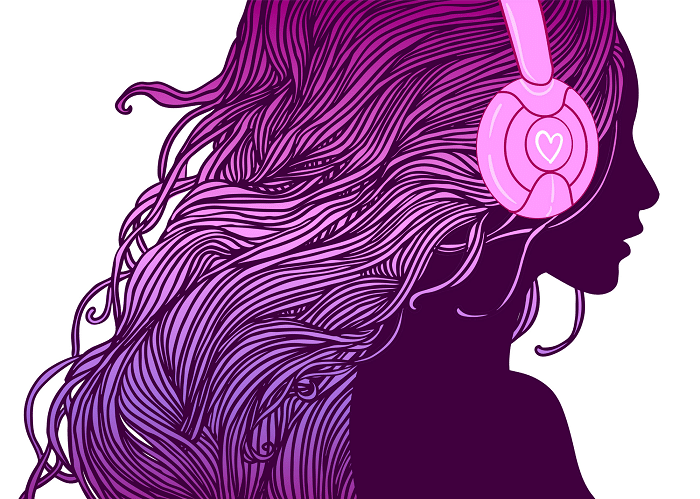
It’s really kind of a taboo topic, self-care. Most of us have heard the saying, “You can’t pour from an empty cup,” but how many of us really know what it means? And, for those of us in the human services field, the idea of applying this philosophy can be a challenge.
In fact, our in ability to practice self-care is quite an issue in the social services field. According to the Social Service Review, the turnover rate for those in human services is upwards of 60% per year, with a lifetime burnout rate of 79%.
As many know, burnout and turnover in social services has a negative effect on those we serve. Many individuals and families will go through numerous workers while trying to navigate through the social services system.
What Is Happiness Anyway?

During long road trips when I was a kid, instead of switching on the radio my father sang, sometimes accompanied my mother. My brother had left home, so it was just me in the back, behind a blanket strung from door to door, pretending I was on a pirate ship headed for China, doing my best to blot out my father’s off-key warbling. Bernie was not a happy man, but his repertoire had a single theme: Happy Days Are Here Again, Smile (though your heart is breaking) and Put On A Happy Face topped his hit parade.
My mother wasn’t any happier than my father, but it was as if she had drunk the same cultural Kool-Aid as he. They both had got the message that happiness is the only worthy emotion. The rest—anger, disappointment, fear, sorrow—were signs of a weak character. Shameful. I got the message, too. Like so many Westerners, especially Americans, we believed we were supposed to be happy all the time—as far as I can tell, the number one, surefire predictor of misery.
“We have this default assumption that happiness is a calculus of pleasure and pain, and if you get rid of pain and multiply pleasures then you’ll be happy, but it doesn’t work that way,” says Darrin McMahon, a history professor at Dartmouth College and author of Happiness: A History. What’s more, he explains, “The idea of happiness as our natural state is a peculiarly modern condition that puts a tremendous onus on people. We blame ourselves and feel guilty and deficient when we’re not happy.”
How to Let Go of Negativity and Stress

Truly effective stress management involves a mix of habits and thought patterns that minimize the stress you encounter in life and increase your ability to cope with the stress you must face. There are several habits that can increase your resilience to stress, including meditation, exercise, focusing on the positive, and surrounding yourself with positive and supportive people, to name a few.
While building your resilience to the inevitable stress you must face in life can go a long way in helping you to stay balanced with stress, it’s by no means the only route to stress relief, nor should it be. Cutting out stressors whenever possible is always a good idea. Letting go of our own self-defeating habits is another important strategy. You may not even be aware of all the ways in which you self-sabotage, so here is an important refresher course.
Can’t Sleep? Pro Tips to Battle Insomnia

Who hasn’t experienced it? You’re in the midst of a glorious night sleep, comfortably dreaming away, and suddenly you’re thrust back into reality. You’re awake, but your eyes aren’t open yet. The state of your restfulness tells you that it’s clearly not time for you to wake-up, but you just have to take a peek at that clock, just to make sure.
It’s 2:00am, or maybe it’s 3:00am, or even 4:00am. It doesn’t matter. All that matters is that you’re now awake and kicking yourself for overthinking it and looking at that clock. Because, let me tell you my friend, there’s no way you’re going back to sleep now.
Story sound familiar? If so, you may be one of the 60 million Americans that struggle with insomnia each year.
6 Self-Care Steps for a Pandemic — Always Important, Now Essential

Airline attendants say it well: if the plane hits turbulence and the oxygen masks come down, place a mask on yourself first before turning to help others. This is absolutely critical. If we don’t, we may not be able to help anyone.
Well, we’ve all hit the same turbulence, folks, and we all need to take good care of ourselves, our bodies, and our minds.
Healthcare providers on the front lines of the coronavirus pandemic absolutely have to be functioning well in order to do their jobs well. At such a stressful time, with so much change and uncertainty, combined with the pressures of patient care during this pandemic, it almost seems like too much. How are people like doctors holding it together? Could we all learn from their tips on coping?
5 Self-Care Practices for Every Area of Your Life

All the stress relief activities in the world won’t help if you aren’t taking care of yourself.
Meditation won’t do you any good if you aren’t getting adequate sleep. In fact, when you try to meditate, you might doze off because you aren’t taking care of your body’s need for sleep.
Similarly, hitting the gym once in a while won’t relieve much stress if you’re only fueling your body with high-processed junk food. You need to take care of your basic needs first if you want your stress relief activities to be effective.
All it takes is 10 mindful minutes | Andy Puddicombe
Coping with Coronavirus Stress

Have you been noticing a spike in your stress as a result of COVID-19? If so, you certainly aren’t alone. Pandemics are not declared lightly, and an increase in your stress is actually a normal response. However, not only is stress unpleasant, it can also hinder your immunity. The World Health Organization emphasizes that preventative care plays a crucial role in fighting the Coronavirus, therefore, it’s helpful to boost your coping in an effort to improve your overall well-being. Here are four strategies to help you maintain your mental wellness during the COVID-19 pandemic.
What I Wish I Had Known: Burnout and Self-Care in Our Social Work Profession

The training to become a social worker is arduous, demanding, and complex. My concentration was clinical social work, which during my graduate education was known as casework. I well remember studying my basic curriculum; taking more electives than were required; receiving excellent supervision of my clinical work with individuals, couples, families, and groups; and before it was required, taking many continuing education classes.
Suffice it to say, I learned a great deal—but what it seemed that no one shared with me during these years, or seemed to discuss among themselves as either teachers or therapists, was the sheer exhaustion experienced in clinical work as we do our very best to meet the needs of others day after day, year after year. When one of my deeply trusted supervisors died, and I met his wife for the first time, she told me that sometimes he would return home too exhausted to even speak, and that a frequent statement she heard from a man who obviously treasured his clinical work, teaching, and writing was: “They feel better, but I surely do not.” How well I understood this feeling, I thought. How well so many in our field must understand this feeling. And yet many of us lack the attendant knowledge that can assess and direct this feeling, which is called “burnout” in the literature—or knowledge of the necessary practices to heal and soothe ourselves, which are collectively known as “self-care.” What I have learned over the years is the necessity of addressing this complicated exhaustion before the feeling of depletion leads to dysfunction and beyond. With this in mind, I share the precise information that I wish I had known about “burnout” and “self care” in the early years of my work, with references for your further study.









